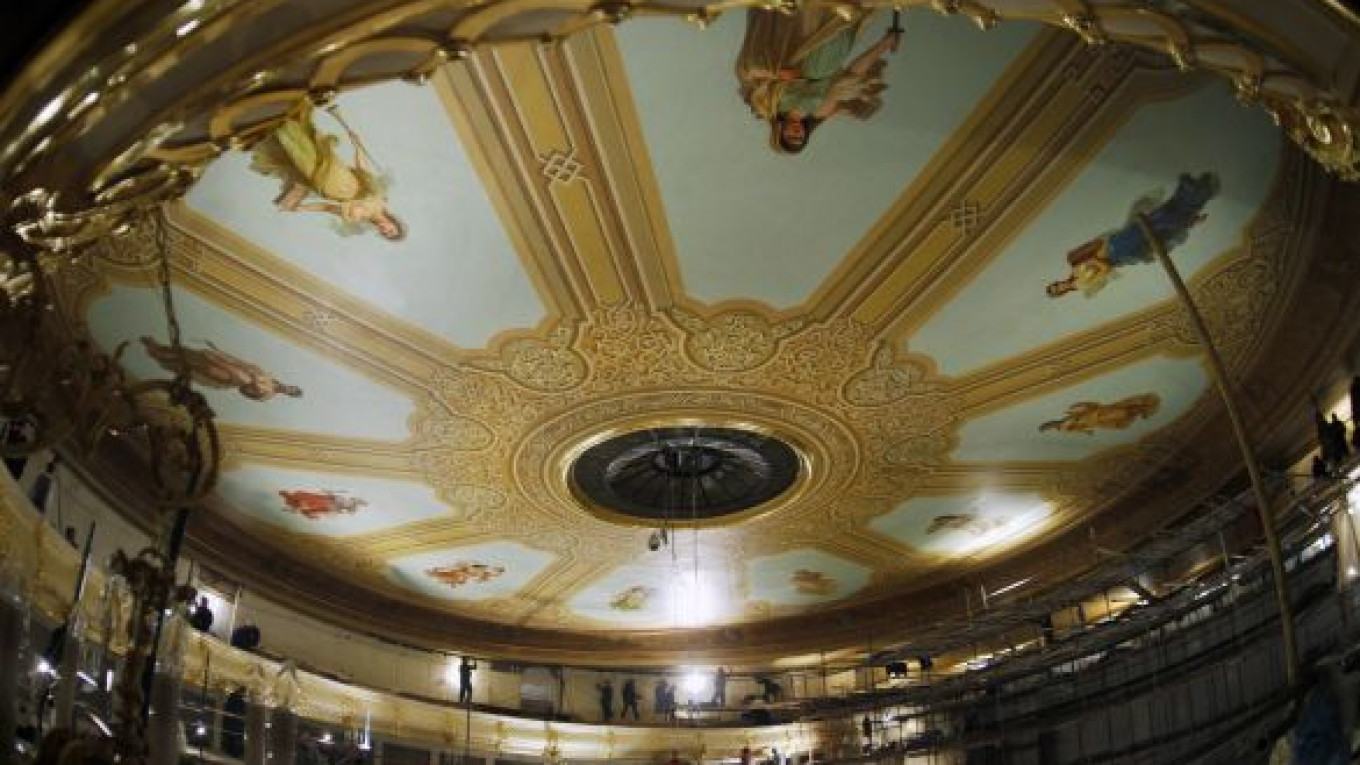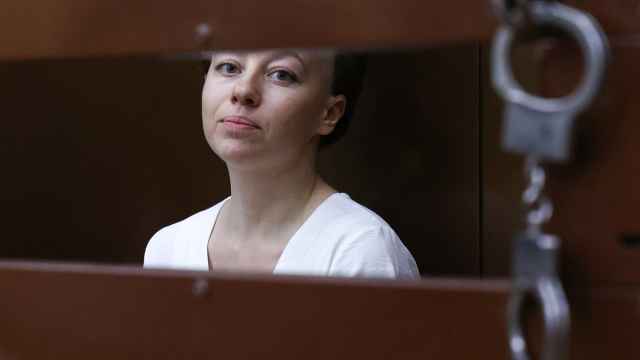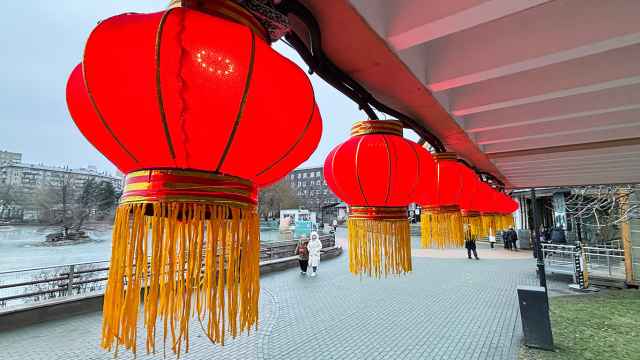A medieval recipe of vodka, gold leaf and eggs is the key behind the finishing touches on the protracted revamp of the Bolshoi Theater, renovators said.
After years of neglect during Soviet times, the Bolshoi's main stage closed in 2005 and was meant to reopen in 2008. However, the eight-columned, cream-colored ballet and opera house is now expected to be complete in October.
Although it was built in 1776, gilders, weavers and decorators are working around the clock to restore the theater to its 19th-century glory, the era considered its most opulent.
"Gilding is done by an old Russian vodka-based method," said Mikhail Sidorov, communications director of Summa Capital, which has led the renovation for the past 18 months.
To bring back the theater's imperial sheen, Sidorov said they were using a medieval recipe that relies on keeping egg whites in a warm room for 40 days before mixing it with clay.
Finished off with vodka, it is then used to apply gold leaf measuring 0.1 millimeter thick onto the theater's curved ceilings and balconies. "This method keeps gold from being overused and helps retain its luster for 50 to 70 years," he told reporters this week.
With officials investigating allegations that millions of rubles destined for the $1 billion restoration were stolen, and cultural authorities growing increasingly embarrassed by delays, gilders are now fighting against time to finish.
"We are supposed to work eight-hour days, but we've been staying longer because of the time pressure," said gilder Svetlana, who has been decorating the top balcony for more than a year.
The rare trade — only 100 professional gilders work in Moscow — means that an additional 50 had to be brought to the capital to carry out the delicate handwork.
Plus, new seats are also being fitted to restore the theater's 19th-century look, using weaved fabrics made by a monastery in the Russian countryside.
This reduces the number of seats for the main stage from 2,100 to 1,720, renovators said, adding that the fabric from the old seats had been ripped off in Soviet times to make more room.
The theater's main seating hall is expected to be finished by the summer, allowing for ballet and operatic troupes to rehearse ahead of the planned October opening, Sidorov said.
A Message from The Moscow Times:
Dear readers,
We are facing unprecedented challenges. Russia's Prosecutor General's Office has designated The Moscow Times as an "undesirable" organization, criminalizing our work and putting our staff at risk of prosecution. This follows our earlier unjust labeling as a "foreign agent."
These actions are direct attempts to silence independent journalism in Russia. The authorities claim our work "discredits the decisions of the Russian leadership." We see things differently: we strive to provide accurate, unbiased reporting on Russia.
We, the journalists of The Moscow Times, refuse to be silenced. But to continue our work, we need your help.
Your support, no matter how small, makes a world of difference. If you can, please support us monthly starting from just $2. It's quick to set up, and every contribution makes a significant impact.
By supporting The Moscow Times, you're defending open, independent journalism in the face of repression. Thank you for standing with us.
Remind me later.






